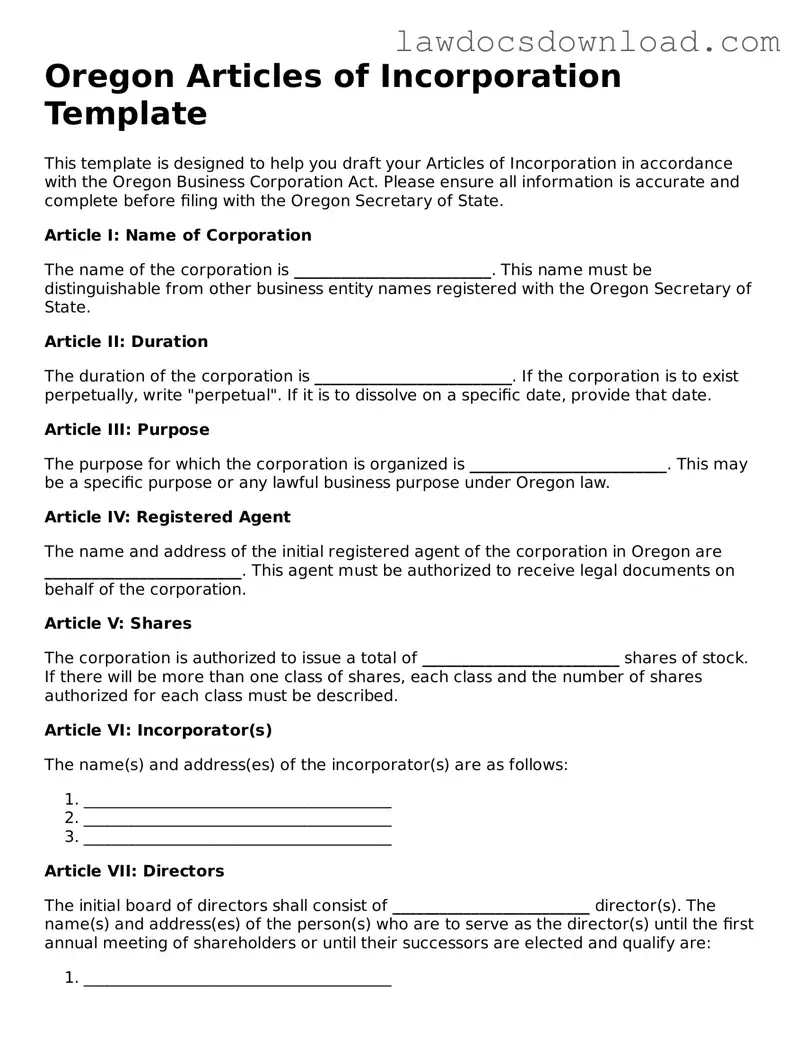Oregon Articles of Incorporation Template
This template is designed to help you draft your Articles of Incorporation in accordance with the Oregon Business Corporation Act. Please ensure all information is accurate and complete before filing with the Oregon Secretary of State.
Article I: Name of Corporation
The name of the corporation is _________________________. This name must be distinguishable from other business entity names registered with the Oregon Secretary of State.
Article II: Duration
The duration of the corporation is _________________________. If the corporation is to exist perpetually, write "perpetual". If it is to dissolve on a specific date, provide that date.
Article III: Purpose
The purpose for which the corporation is organized is _________________________. This may be a specific purpose or any lawful business purpose under Oregon law.
Article IV: Registered Agent
The name and address of the initial registered agent of the corporation in Oregon are _________________________. This agent must be authorized to receive legal documents on behalf of the corporation.
Article V: Shares
The corporation is authorized to issue a total of _________________________ shares of stock. If there will be more than one class of shares, each class and the number of shares authorized for each class must be described.
Article VI: Incorporator(s)
The name(s) and address(es) of the incorporator(s) are as follows:
- _______________________________________
- _______________________________________
- _______________________________________
Article VII: Directors
The initial board of directors shall consist of _________________________ director(s). The name(s) and address(es) of the person(s) who are to serve as the director(s) until the first annual meeting of shareholders or until their successors are elected and qualify are:
- _______________________________________
- _______________________________________
Article VIII: Indemnification
The corporation elects to indemnify its officers, directors, employees, and agents to the fullest extent permitted by the Oregon Business Corporation Act.
Article IX: Additional Provisions
Additional provisions, if any, regarding the management and operations of the corporation are as follows:
_________________________________________
_________________________________________
This document is certified to be the act and deed of the corporation, signed by the undersigned incorporator(s).
_________________________________________
Signature of Incorporator
_________________________________________
Printed Name of Incorporator
Date: ___________________________________
Note: Once completed, this document needs to be filed with the Oregon Secretary of State along with the required filing fee. Please consult the Oregon Secretary of State's website for the current fees and further instructions on how to file your Articles of Incorporation.

